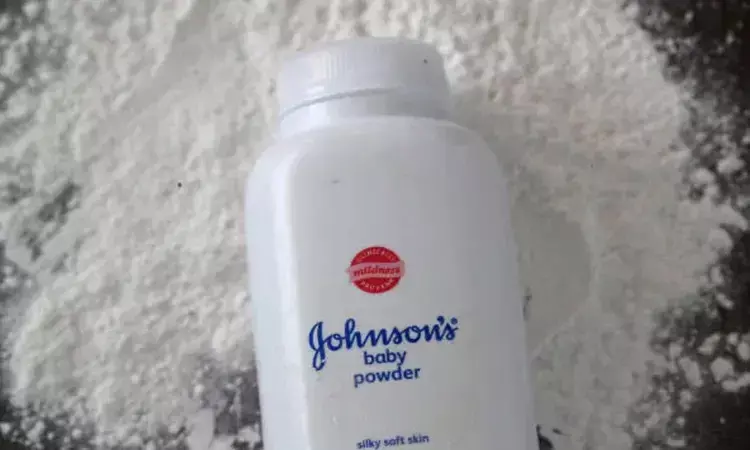- Home
- Medical news & Guidelines
- Anesthesiology
- Cardiology and CTVS
- Critical Care
- Dentistry
- Dermatology
- Diabetes and Endocrinology
- ENT
- Gastroenterology
- Medicine
- Nephrology
- Neurology
- Obstretics-Gynaecology
- Oncology
- Ophthalmology
- Orthopaedics
- Pediatrics-Neonatology
- Psychiatry
- Pulmonology
- Radiology
- Surgery
- Urology
- Laboratory Medicine
- Diet
- Nursing
- Paramedical
- Physiotherapy
- Health news
- Fact Check
- Bone Health Fact Check
- Brain Health Fact Check
- Cancer Related Fact Check
- Child Care Fact Check
- Dental and oral health fact check
- Diabetes and metabolic health fact check
- Diet and Nutrition Fact Check
- Eye and ENT Care Fact Check
- Fitness fact check
- Gut health fact check
- Heart health fact check
- Kidney health fact check
- Medical education fact check
- Men's health fact check
- Respiratory fact check
- Skin and hair care fact check
- Vaccine and Immunization fact check
- Women's health fact check
- AYUSH
- State News
- Andaman and Nicobar Islands
- Andhra Pradesh
- Arunachal Pradesh
- Assam
- Bihar
- Chandigarh
- Chattisgarh
- Dadra and Nagar Haveli
- Daman and Diu
- Delhi
- Goa
- Gujarat
- Haryana
- Himachal Pradesh
- Jammu & Kashmir
- Jharkhand
- Karnataka
- Kerala
- Ladakh
- Lakshadweep
- Madhya Pradesh
- Maharashtra
- Manipur
- Meghalaya
- Mizoram
- Nagaland
- Odisha
- Puducherry
- Punjab
- Rajasthan
- Sikkim
- Tamil Nadu
- Telangana
- Tripura
- Uttar Pradesh
- Uttrakhand
- West Bengal
- Medical Education
- Industry
Lack of uniform test for carcinogenic substances in JnJ baby products: NCPCR issues summons to CDSCO, DGCI

The NCPCR also asked both the DCGI and the CDSCO as to why the latter has not regulated the standards and ensured uniformity in the testing methods.
New Delhi: The National Commission for Protection of Child Rights on Thursday issued summons to the Drug Controller General of India (DCGI) and the Central Drugs Standard Control Organisation (CDSCO) over the lack of uniformity and standardization in testing methods for detecting the presence of formaldehyde and asbestos in Johnson and Johnson's baby shampoo and talcum powder.
Both formaldehyde and asbestos have been identified as a carcinogen, a substance that promotes the formation of cancer in the body.
The DCGI heads the CDSCO, which comes under the jurisdiction of the Union Ministry of Health and Family Welfare.
Time and again the commission has made attempts to seek definite information on the standardized and validated method for analyzing the presence of formaldehyde in baby shampoo and asbestos in talcum powder manufactured and marketed by Johnson & Johnson Private Limited, the summons issued by the NCPCR stated.
But the received response from the CDSCO clearly shows the lack of diligence on its part to perform its functions properly, it said.
The NCPCR summons referred to a CDSCO letter dated March 12, 2020, which provided details of the testing methods. According to the letter, there is no uniformity in the testing methods used by labs to detect the presence of formaldehyde and asbestos in J&J's products.
"It is clear from the above response (the letter) that there is no uniformity in testing methods for the purpose of testing the presence of formaldehyde in baby shampoo and asbestos in talcum powder and the same is clearly a mandate of CDSCO to regulate...Therefore, in view of the above, the Commission requires you to appear in person in this matter along with relevant records/documents on 12th March, 2021 at 1200 hrs in the office of the Commission…," the summons stated.
The NCPCR also asked both the DCGI and the CDSCO as to why the latter has not regulated the standards and ensured uniformity in the testing methods.
It also sought details of the method used for testing the presence of formaldehyde and asbestos in J&J''s baby shampoo and talcum powder by the Office of Drug Control Officer and asked why it had not been shared with the commission.
The apex child rights body also asked whether the said testing method so used is accredited by the Indian Pharmacopoeia Commission or any other authority, and why no proper information, as demanded by the NCPCR, has been provided within the stipulated time period despite various communications in this regard.
J&J's baby products came under the scanner in March 2019 when drug inspectors in Rajasthan claimed that they had found formaldehyde in two batches of its ''No More Tears'' baby shampoo.
However, later in the year, the Central Drugs Laboratory (CDL), Kolkata said it was safe to use the shampoo.
In 2014, US-based J&J had to restructure the shampoo and many other products after concerns were raised about the presence of formaldehyde and other potentially harmful substances in them.
Ruchika Sharma joined Medical Dialogue as an Correspondent for the Business Section in 2019. She covers all the updates in the Pharmaceutical field, Policy, Insurance, Business Healthcare, Medical News, Health News, Pharma News, Healthcare and Investment. She has completed her B.Com from Delhi University and then pursued postgraduation in M.Com. She can be contacted at editorial@medicaldialogues.in Contact no. 011-43720751


